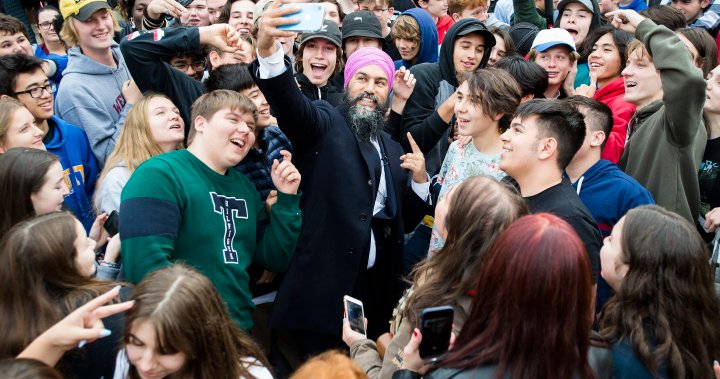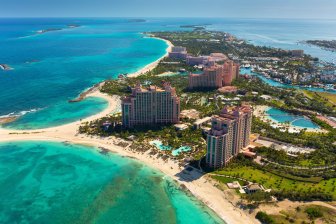When the country next elects a national government, there will be about 4.5 million Canadians under the age of 30 eligible to vote, a group that demographers have labelled Generation Z, and that pollsters here and around the world say engage in politics in different ways than older voters.
The arrival of Generation Z — this cohort will be about 14 per cent of all eligible voters in 2025 — is almost certain to have a significant and growing impact on the political culture of Western democracies, including Canada, as this youngest group of voters focuses their political activity on solving the problems their generation has identified as top priorities — climate change and housing are currently the top two in Canada — and are prepared to move their support across the political spectrum to match those priorities.
“It’s interesting because I think my generation has a little bit more of a cynical approach to thinking about how politicians are going to be helping us out right now,” said Russell Van Raalte, a 21-year-old third-year economics student at Queen’s University in Kingston, ON. “I think we look at the housing crisis and the environment and we say to ourselves, really, can the government do very much? I’m not exactly sure.”
While there is no hard-and-fast rule about the dividing line between Gen Z and its predecessor Millennial generation, many demographers say anyone born in 1997 and later belongs to Generation Z. The oldest Gen Z, then, would be somewhere around 28-years-old in the fall of the 2025 when the next federal election is scheduled to take place.
A 2023 survey of American adults by the Walton Family Foundation found “Gen Z feels stressed, unprepared for life after graduation and has little faith in political leaders to understand their challenges.”
Van Raalte got interested in politics while in high school in Guelph, Ont. and was recently the “Prime Minister” in the 77th annual Queen’s University Model Parliament staged in the actual House of Commons in Ottawa.
“The environment was always something that was really important in our classrooms.,” Van Raalte said. “And after that, of course, COVID, because it affected my generation so greatly. We didn’t get to finish our high school, maybe start our university. That was another issue that was very important politically to us.”
Get the latest National news.
Sent to your email, every day.
Pollsters here and elsewhere have found that the youngest cohort of voters are more likely than older voters to prefer progressive parties. In the United States, that means younger voters are more likely to vote for the Democrats whereas in Canada, the preference, at least among English Canadian GenZ adults, is for the NDP. In a poll published in November, Ipsos found that nearly 40 per cent of those under 30 favoured the NDP while just 18 per cent of those over 30 would do the same.
That said, that strength of support that the NDP has among younger voters is less than it appears because younger Canadians have historically cast ballots at a much lower rate than any other age cohort. Indeed, in the 2021 election, Canadians aged 55 to 64 cast 20 ballots versus just 15 ballots cast by Canadians 18 to 24.
And party preference among younger voters is more volatile. Generation Z is more likely than their older peers to consider switching party preference to the party that most closely matches their priority issues.
“I think for me, it’s actually always been an issues-based engagement with politics,” said 21-year-old University of Ottawa political science student Grace Kim-Shin. “I think a lot of the political issues I care about, I would like to see parties like participation and collaboration across party lines.”
And while younger voters tend to see more progressive parties as more aligned on the issues GenZ adults rank as most important, that Ipsos poll from November found that nearly one in three respondents under 30 said they would vote Conservative — almost certainly the result of the Conservatives seemingly singled-minded focus on housing, an issue with GenZ adults ranks as a higher priority than other generational cohorts.
Data from public pollsters like Ipsos supports that conclusion but so does the weekly polling program done by the Privy Council Office (PCO). The PCO asks 1,000 Canadians each and every week to name the number one issue it wants the federal government to work on and, over the last 18 months, housing has shot to the top of the list, led by younger respondents.
That said, the PCO’s polling program has also found that climate change and the environment have been consistently in the top three issues among voters for the last 18 months. (Global News has used multiple requests under the federal Access to Information Act to obtain the PCO polling program raw data.)
“I think one of the main issues that really differentiate my generation and the older generation is definitely political conversations around climate change,” said Kim-Shin. “I think for young people, this is really at the forefront of what we care about when it comes to politics, particularly because we have a huge stake in this political issue for our future. And I think sometimes … we feel the older generation doesn’t feel the same sense of urgency that we do when it comes to this.”
A poll published in 2021 by the U.S.-based non-profit Pew Research Center found that 45 per cent of Gen Z adults and 40 per cent of Millennials had interacted on a social media platform on the need for action on climate change. By comparison, just 27 per cent of Generation X and Boomer adults had done the same.
In the meantime, some of the current political obsessions of older voters often puzzle Generation Z, none more so perhaps than the culture wars over the so-called “woke” agenda.
“I feel like when I speak to people who are older than me, they really tend to focus in on that and say that the ‘Woke Left’ or whatever is really only focusing in on these issues,” said van Raalte. “But I think that it’s really the Right who’s bringing up these issues more frequently … when really we’re trying to talk about these other kinds of issues.”
Indeed, in a 2022 PerryUndem/YouGov poll of American voters, respondents were asked to rate a series of issues as a “big” or “somewhat of a big” problem. Among respondents over 60, 62 per cent agreed “The ‘woke’ agenda” was a big problem but just 45 per cent of those 18-29 said the same thing.
© 2024 Global News, a division of Corus Entertainment Inc.










